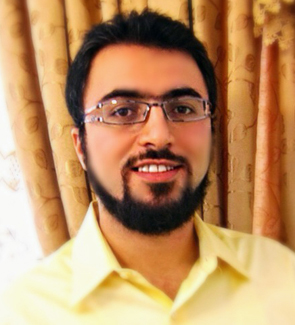Barzan Mozafari receives NSF CAREER Award to improve predictability of database systems
Prof. Mozafari is passionate about building large-scale data-intensive systems that are more scalable, more robust, and more predictable.

 Enlarge
Enlarge
Assistant Professor Barzan Mozafari has been awarded an NSF CAREER grant for his research project, “CAREER: Designing a Predictable Database – An Overlooked Virtue.”
Four decades of research on database systems has focused primarily on the improvement of average raw performance, with little emphasis placed on the predictability of database management systems. However, as database systems have become more complex, their erratic and unpredictable performance has become a major challenge facing database users and administrators alike. With the increasing reliance of mission-critical business applications on their databases, maintaining high levels of database performance (i.e., service level guarantees) is now more important than ever. Cloud users find it challenging to provision and tune their database instances, due to the highly non-linear and unpredictable nature of today’s databases. Even for deployed databases, performance tuning has become somewhat of a black art, rendering qualified database administrators a scare resource.
Under this project, Prof. Mozafari aims to restore the missing virtue of predictability in the design of database systems. First, he will quantify the major sources of uncertainty in a database in a principled manner. Then, by rethinking the traditional design of a database system, he will architect a new generation of databases that treat predictability as a first class citizen in their various stages of query processing, from physical design to memory management and query scheduling. Moreover, to accommodate existing database systems (which are not predictable by design), he will develop tools and methodologies for predicting their performance more accurately.
Commenting on the project, Prof. Mozafari says that “Through the process of building a predictable database in a bottom-up fashion and in a principled manner, we can expect great insight into improving existing database products and can instigate a radical shift in the way that future databases are designed and implemented.”
More information about the project is available in Prof. Mozafari’s CAREER Award Posting by NSF and on Prof. Mozafari’s website.
Prof. Mozafari is passionate about building large-scale data-intensive systems that are more scalable, more robust, and more predictable, with a particular interest in database-as-a-service clouds, distributed systems, and crowdsourcing. In his research, he draws on advanced mathematical models to deliver practical database solutions, adapting concepts and tools from applied statistics, complexity theory, automata theory, and machine learning.
Prof. Mozafari received his PhD in Computer Science from the University of California Los Angeles in 2011. He joined the faculty of CSE at the University of Michigan in 2013 after two years as a postdoctoral researcher at Massachusetts Institute of Technology in the CSAIL Lab. Prof. Mozafari has won several awards and fellowships, including Best Paper Awards at SIGMOD 2012 and EuroSys 2013. He is affiliated with the Database Research Group and the Software Systems Lab in CSE and the Center for Data-Driven Computational Physics at the Michigan Institute for Computational Discovery and Engineering (MICDE).
About the NSF CAREER Award
The CAREER grant is one of the National Science Foundation’s most prestigious awards, conferred for “the early career-development activities of those teacher-scholars who most effectively integrate research and education within the context of the mission of their organization.”
 MENU
MENU 
